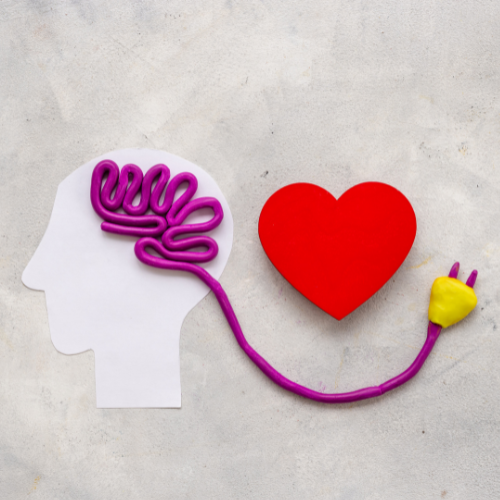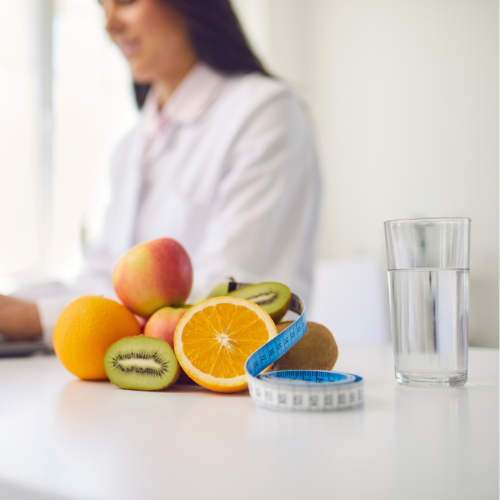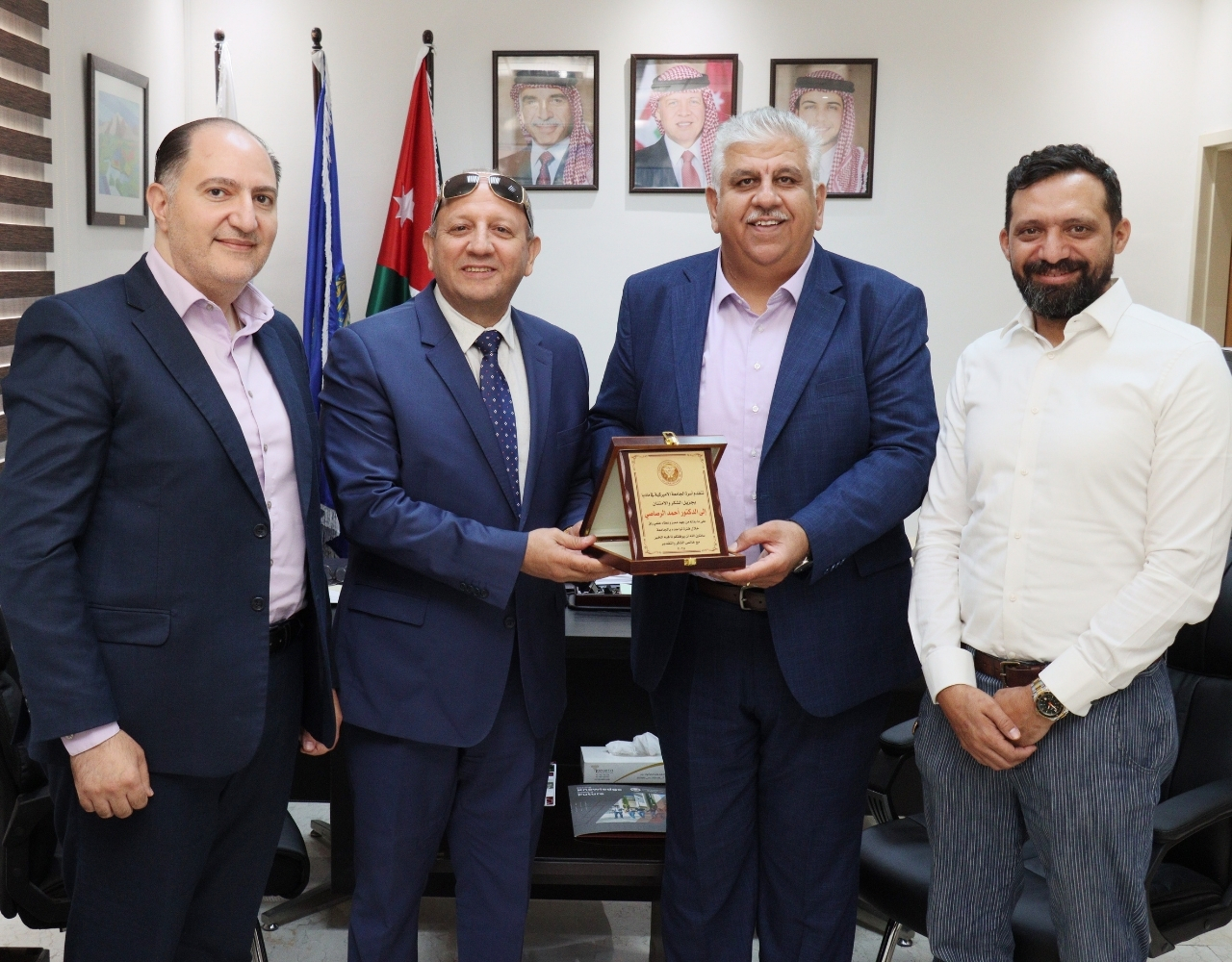About Faculty
Information about the faculty, its vision, and mission.

To achieve local and regional distinction in advancing health sciences education, leveraging innovative medical knowledge and ethical practice to prepare professionals who will lead societal health improvements.

To foster comprehensive human development through delivering high-quality health education and hands-on experience through our esteemed faculty, advanced technology and partnerships with healthcare industries. We focus on preparing graduates who are equipped with essential knowledge, competencies and skills to succeed in the global market, always upholding our philosophy of care, integrity and ethical practice.
Dean’s Welcome
Welcome message from the Dean.
Academic Departments
Information about various academic departments.

Pharmacy
In the Pharmacy program at AUM, students will begin their journey towards offering people an honorable service to preserve life in local, regional and global communities. Students will be trained on how to extract, isolate and purify pha...
- 165 Credit Hours
- 80 % Minimum Accepted Grade

Medical Laboratories
Medical Labs are one of the most imperative aspects of medicine, for without it healthcare providers would not be able to properly diagnose patients. At AUM the Medical Laboratories program is designed to produce excellent medical labora...
- 136 Credit Hours
- 70 % Minimum Accepted Grade

Nutrition and Health Psychology
The Nutrition and Health Psychology program at AUM blends nutrition science with psychology to promote mental and physical well-being. Students learn to diagnos...
- 136 Credit Hours
- 70 % Minimum Accepted Grade

Nutrition and Dietetics - (Ceased Enrolment)
Nutritionists and dietetics are responsible for supporting patients In food-related medical and health issues. Through AUM Nutrition and dietetics program. Students will...
- 136 Credit Hours
- 60 % Minimum Accepted Grade
Faculty Members & Staff
List and information about faculty members and staff.
Dean of Faculty of Health Sciences
Medical Laboratories
Nutrition and Dietetics
Nutrition and Health Psychology
Pharmacy
Executive Board
Details about the executive board members.
Facilities & Labs
Information about the facilities and laboratories.
xx-xx: Human Anatomy and Histology Lab
xx-xx: Human Physiology Lab
xx-xx: Clinical Hematology and Immunohematology Lab
xx-xx: Automation and Research Lab
xx-xx: Microbiology Lab
xx-xx: Clinical Biochemistry Lab
xx-xx: Clinical Diagnostic Lab
SA-G16: Dietetics and Meal Planning Lab
The Dietetics Lab is designed to provide students with hands-on training in nutritional assessment, dietary planning, and practical dietetics. This lab plays a vital role in preparing students in the Department of Nutrition and Health Psychology for clinical and community nutrition practice.
The lab is equipped with a stadiometer for precise height measurement and a bathroom scale for weight tracking, essential for anthropometric assessments. To enhance learning, the lab also features an extensive collection of food models that represent various food groups and portion sizes. These models are used for teaching portion estimation, meal planning, and nutritional education.
In addition, the lab includes interactive tools and visual aids that support the application of theoretical knowledge in practical scenarios. Students use these resources to create individualized meal plans and assess dietary intake, ensuring they are well-prepared for real-world dietetics practice.
SA-G14: Assessment of Nutritional Status Lab
The Nutritional Assessment Lab is designed to equip students with the tools and skills needed to assess and analyze nutritional status accurately. This lab supports practical learning and research in the Department of Nutrition and Health Psychology.
The lab is outfitted with five desktop computers (1 DELL and 4 HP) for data analysis and research. It features six body analyzers (TANITA, SN: 19604, 19646, 19647, 19648, 19649, 19605) and one segmental body analyzer (TANITA, SN: 15060044) for detailed body composition analysis. For children, six wireless body fat monitors (TANITA IRONKIDS) are available.
Other essential equipment includes ten blood glucose monitors (On Call Plus) for measuring blood sugar levels, four skinfold measuring calipers (SLIMGUIDE) for assessing body fat, and seven measuring tapes for anthropometric measurements. The lab also includes a stadiometer for height measurement, two bathroom scales for weight assessment, and a Canon data show device for teaching and presentations.
This comprehensive setup enables a wide range of nutritional assessment tasks, from anthropometry to biochemical analysis, ensuring that students gain practical experience in modern nutritional evaluation techniques.
SA-F15: Food Science Lab
The Food Science Lab is a well-equipped facility designed to support education and research in food preparation, processing, and analysis. It provides a practical environment for students in the Department of Nutrition and Health Psychology to explore various food science principles and applications.
The lab features essential apparatus and machines such as a cooking gas unit (SONA), a cooking oven (SAMIX), and a fridge (HISENSE) for food preparation tasks. Additional equipment includes a fryer, two HACCP thermometers (VWR), and specialized tools like a homogenizer (IKA) and a viscometer (Fungilab). To ensure water quality, the lab is equipped with a water filter (Thermo Scientific).
For analytical and processing needs, the lab includes a shaking water bath (STUART), two hot plates (VWR), and balances (ADAM and BEL Engineering) for precise measurements. The lab also supports food product development with machines like a sausage filling machine (Baalbaaki), a table-top vacuum packer (Baalbaaki), and a dough maker with blender unit (DW).
Other notable equipment includes a lab blender (WARING), three citrus juicers (SAMIX), and various supportive instruments to facilitate food science experiments and research.
SA-S27: Food Preparation and Management Lab
The Food Preparation and Management Lab is tailored to provide practical training in food preparation techniques and food service management. This lab is essential for students in the Department of Nutrition and Health Psychology, combining theoretical knowledge with hands-on experience.
The lab includes essential apparatus such as a fridge (National Electric) for food storage and a cooking gas unit (Carino Plus) for culinary applications. Specialized equipment includes a yogurt incubator (High-Class Electric Fermenter) for fermented dairy production, a cheese-making table (Baalbaki) for practical cheese preparation, and a dough maker with a blender unit (DW) for baking and food production experiments.
Additionally, the lab is equipped with a lactometer for measuring milk density and a milk churner for butter and cream preparation, enabling students to explore traditional and modern dairy processing methods.
xx-xx: Analytical Chemistry Lab
xx-xx: Pharmaceutical Organic Lab
xx-xx: Instrumental Lab
xx-xx: Phytochemistry Lab
xx-xx: Medicinal Chemistry Lab
xx-xx: Pharmaceutics Lab
xx-xx: Pharmaceutical Technology Lab
xx-xx: Anatomy Lab
xx-xx: Pharmaceutical Microbiology Lab
xx-xx: Virtual Pharmacy
SA-S09: Food Microbiology Lab
The Food Microbiology Lab is designed to provide students with hands-on experience in microbiological techniques and analysis, emphasizing food safety and microbial testing. This lab supports the educational and research needs of the Department of Nutrition and Health Psychology.
The lab is equipped with five microscopes for microbial observation and analysis, an incubator (Thermoscientific HERATHERM), and an oven (INCUCELL) for microbial cultivation and sterilization processes. It also includes a fridge (Hisense) for storing microbial cultures and a stomacher (Interlab i Mix) for homogenizing samples.
For additional support, the lab has a microwave (National Electric) for heating and sample preparation, a water bath (STUART), and a precision balance (ADAM) for accurate measurements. A fume hood ensures safety during experiments that involve volatile substances.
To facilitate teaching and presentations, the lab includes a data show device (Canon), enhancing the learning experience for students engaged in microbiological studies.
SA-F17: Food Chemistry and Analysis Lab
This lab is equipped to perform advanced food chemistry and analysis tasks. The facilities include state-of-the-art instruments for chemical, physical, and nutritional analyses, ensuring a comprehensive learning and research environment for students in the Department of Nutrition and Health Psychology.
The lab houses a wide array of instruments, including a calorimeter (IKA), centrifuge (FUNK GERBER), economy oven (SHEL LAB), and a muffle furnace (THERMOSCIENTIFIC). For precise chemical and physical analysis, it is equipped with two hot plates (VWR), two pH meters (EUTECH and Mettler Toledo), two refractometers (ATAGO), a spectrophotometer (LABOMED), a sensitive balance (Mettler Toledo), and a thermometer. Specialized equipment includes Soxhlet heating mantles in small (Electrothermal) and large sizes (Electrothermal), a Soxhlet Vigreox column, and a range of Kjeldahl apparatus such as a digestion unit, acid fume extractor, and an automatic distillation apparatus (Behr Labor-Technik).
Additional apparatus include a magnetic stirrer (Behrotest), automatic titrator (DIT 50 Behrotest), and shaker (Barnstead International). Safety is prioritized with a safety storage cabinet and two fume hoods. Other instruments include a portable hardness tester (PHASE II) and a vortex (VWR). This comprehensive setup ensures a robust and dynamic environment for academic and research purposes.
SA-F15: Food Technology Lab
The Food Technology Lab is a dynamic facility designed to support education and research in food processing, preservation, and product development. This lab provides students in the Department of Nutrition and Dietetics with hands-on experience in advanced food technology and innovation.
The lab is equipped with essential apparatus, including a cooking gas unit (SONA) and cooking oven (SAMIX) for heat-based food processing. A fridge (HISENSE) ensures the proper storage of food samples and ingredients, while a fryer and a dough maker with a blender unit (DW) enable students to explore versatile cooking and baking techniques.
Key instruments include two HACCP thermometers (VWR) for food safety monitoring, a homogenizer (IKA) for emulsification, and a viscometer (Fungilab) for analyzing food texture and viscosity. The lab also features a shaking water bath (STUART) for controlled heating and mixing, hot plates (VWR), and balances (ADAM and BEL Engineering) for precise measurements.
Specialized equipment includes a sausage filling machine and a tabletop vacuum packer (both by Baalbaki) for product development. Additionally, three citrus juicers (SAMIX) and a lab blender (WARING) support juice extraction and food preparation tasks. A water filter (Thermo Scientific) ensures high-quality water for all experiments and processes.
This comprehensive setup allows students to engage in practical learning and apply food technology principles to real-world scenarios, preparing them for careers in the food industry.
SA-S27: Dairy Technology Lab
The Dairy Technology Lab is a specialized facility designed for practical training and research in dairy processing and product development. This lab supports students in the Department of Nutrition and Dietetics, providing them with the tools and knowledge to explore the science and technology behind dairy products.
Key equipment in the lab includes a fridge (National Electric) for storing raw and finished dairy products and a cooking gas unit (Carino Plus) for heat-based processing. A yogurt incubator (High-Class Electric Fermenter) facilitates the fermentation process, while a cheese-making table (Baalbaki) allows for hands-on training in traditional and modern cheese production techniques.
For additional functionality, the lab features a dough maker with a blender unit (DW) for versatile food preparation tasks. Essential instruments include a lactometer for measuring milk density and a milk churner for processing cream into butter. These tools enable students to gain practical experience in evaluating and producing a variety of dairy products.
Publications & Activities
Information about publications and activities.
Learning Resources
Resources available for learning.
Learning Resources ML Department
- Textbooks and Reference Books:
- Core Textbooks: List the primary textbooks for each course, ensuring they are up-to-date with the latest scientific theories and technologies.
- https://drive.google.com/drive/folders/1mE1ynoKDF_K3ifoY04pWBIqhd9yBx4tE
- Online Resources:
- E-Learning Platforms: Moodle, Coursera and Udemy.
- Scientific Journals: PubMed, Scienceopen & DOAJ.
- Laboratory Resources:
- MSD
- SKit inserts/leaflets/pamphlets
- Lab Manuals
- Safety Guidelines
Learning Resources NHP Department:
- Core Textbooks:
- Krause and Mahan's Food & the Nutrition Care Process by Janice L. Raymond and Kelly Morrow, 2022, Saunders, 16th edition, ISBN: 9780323810265.
- Nutrition through the Life Cycle by Judith E. Brown, 2021, Cengage, 7th edition, ISBN: 978-1337919333.
- Nutritional Assessment by David Nieman, 2018, McGraw Hill Education, 7th edition, ISBN: 978-1260084481.
- Robbins & Cotran Pathologic Basis of Disease by Robins and Cotran, 2022, Elsevier, 10th edition, ISBN: 978-0323531139.
- Understanding Nutrition by Ellie Whitney & Sharon Rady Rolfes, 2022, Boston MA 02210, 16th edition, ISBN: 978-0-357-44751-2.
- Medical Nutrition Therapy: A Case Study Approach by Marcia Nelms & Kristen Roberts, 2021, Cengage, 6th edition, ISBN: 978-0357450680.
- Clinical Paediatric Dietetics by Vanessa Shaw, 2020, Wiley Blackwell, 5th edition, ISBN: 978-1119467298.
- Nutrition Education: Linking Research, Theory, and Practice by Isobel Contento & Pamela Koch, 2020, Jones and Barlett Learning, 4th edition, ISBN: 978-1284168921.
- Community Nutrition in Action: An Entrepreneurial Approach by Marie Boyle, 2017, Cengage, 7th edition, ISBN: 978-1337130882.
- Supplementary Books:
- Sports and Exercise Nutrition by William McArdle, 2019, Wolters Kluwer, 5th edition, ISBN: 978-1496377357.
- Food Quality Assurance: Principles and Practices by Inteaz Alli, 2016, CRC Press, 1st edition, ISBN: 978-1566769303.
- Essentials of Food Science by Vickie Vacklavic, 2020, Springer, 5th edition, ISBN: 978-3030-468132.
- Health Psychology by Shelley Taylor and Annette L. Stanton, 2021, McGraw Hill Education, 11th edition, ISBN: 1260253902.
- Food Processing Technology by P. J. Fellows, 2022, Woodhead Publishing, 3rd edition, ISBN: 978-0323-85737-6.
- Reference Books:
- Food Microbiology by Adams & Moss, 2016, New Age International Private Limited, 4th edition, ISBN: 978-1849739603.
- The Handbook of Health Behavior Change by Marisa E. Hilliard & Kristin A. Riekert, 2018, Springer, 5th edition, ISBN: 978-0826180131.
- Health Psychology: Theory, Research and Practice by David F. Marks, 2018, Sage, 6th edition, ISBN: 1529723086.
- Abnormal Psychology by Ronald J. Comer, 2015, Freeman Macmillan, 9th edition, ISBN: 978-1319154172.
- Introduction to the Practice of Psychoanalytic Psychotherapy by Alessandra Lemma, 2015, Wiley, 2nd edition, ISBN: 978-1-118-78883-7.
Textbooks and Reference Books:
Core Textbooks:
|
Gould's pathophysiology for the health professions/ |
|
Fundamentals of urine & body fluid analysis / |
|
ACSM's introduction to exercise science / |
|
Strength training anatomy / |
|
Human physiology / |
|
Bailey & Scott's diagnostic microbiology / |
|
Immunology & serology in laboratory medicine / |
|
Mosby's manual of diagnostic and laboratory tests / |
|
Henry's clinical diagnosis and management by laboratory methods/ |
|
Chemistry / |
|
Medical nutrition therapy : |
|
Urinalysis and body fluids / |
|
Laboratory management : |
|
Quick compendium of clinical pathology / |
|
Robbins & Cotran pathologic basis of disease. |
|
Paniker's textbook of medical parasitology : |
|
Junqueira's basic histology : |
|
Practical guide to diagnostic parasitology / |
|
Color text book of histology / |
|
Basic & applied concepts of blood banking and transfusion practices / |
|
Clinical immunology and serology : |
|
Robbins & Cotran pathologic basis of disease. |
|
BRS pharmacology / |
|
Nutrition therapy and pathophysiology / |
|
Hoffbrand's essential haematology / |
|
Human anatomy / |
|
Rodak's hematology : |
|
Medical genetics / |
|
Basic immunology : |
|
Phlebotomy : |
|
Linné & Ringsrud's clinical laboratory science : |
|
How the immune system works / |
|
Human molecular genetics / |
|
Molecular diagnostics : |
|
Moore's essential clinical anatomy / |
|
Jawetz, Melnick & Adelberg's medical microbiology / |
Supplementary Books:
|
Human physiology : |
|
Human anatomy & physiology / |
|
Clinical biochemistry : |
|
Laposata's laboratory medicine : |
|
Modern blood banking & transfusion practices / |
|
A practical guide to contemporary pharmacy practice and compounding / |
|
Winter's basic clinical pharmacokinetics / |
|
Symptoms in the pharmacy : |
Reference Books:
|
Ansel's pharmaceutical dosage forms and drug delivery systems / |
|
Marks' basic medical biochemistry : |
|
Roach's introductory clinical pharmacology / |
|
Medicinal chemistry / |
|
The toxicologist's pocket handbook / |
|
Pharmaceutical quality by design : |
|
Harper's illustrated biochemistry / |
|
Basic & clinical pharmacology / |
|
Greenspan's basic & clinical endocrinology / |
|
Koneman's color atlas and textbook of diagnostic microbiology / |
|
Food allergy : |
|
Current topics in nutrition and dietetics / |
|
A clinician's guide to food allergies / |
|
Practical psychopharmacology : |
|
Martin's physical pharmacy and pharmaceutical sciences : |
|
An introduction to pharmacovigilance / |
|
General chemistry / |
|
Guyton and Hall textbook of medical physiology / |
|
Krause's food & the nutrition care process / |
|
Atlas of histology with functional correlations / |
|
Cosmeceuticals and active cosmetics / |
|
Dermoscopy of the hair and nails / |
Online Resources
- E-Learning Platforms: Moodle
- Scientific Journals: Access to various databases
Laboratory Resources
- Lab Manuals: Lab manuals are available for students on the E-Learning Platforms
- Safety Guidelines:
- Equipment Manuals: Instructions and troubleshooting guides for laboratory hardware and software.
Libraries and Archives
- Digital Libraries: Access to digital copies of books, journals, and articles are available on the elibrary website.
News
Latest news from the faculty.
Announcements
Important announcements from the faculty.






















